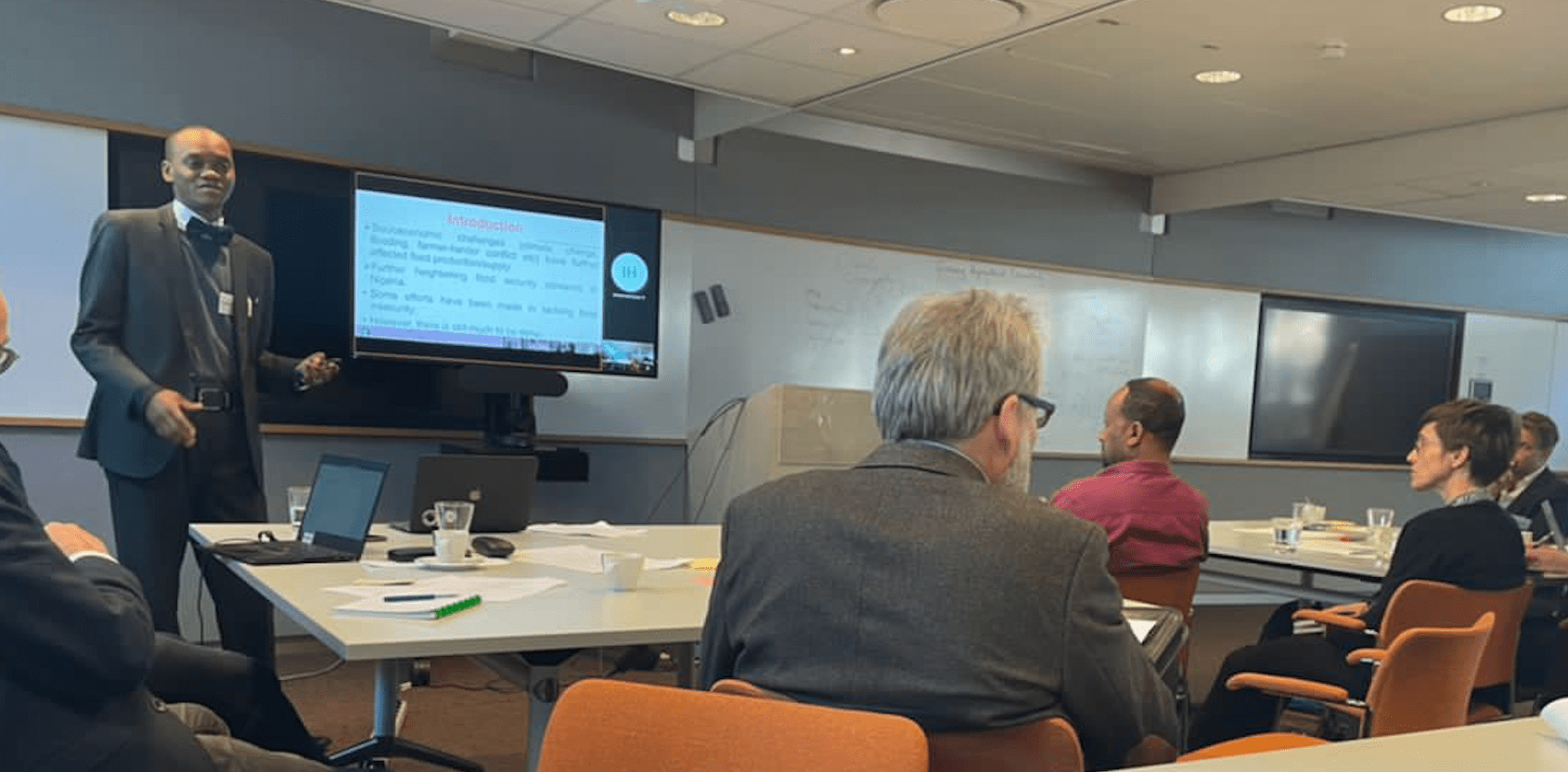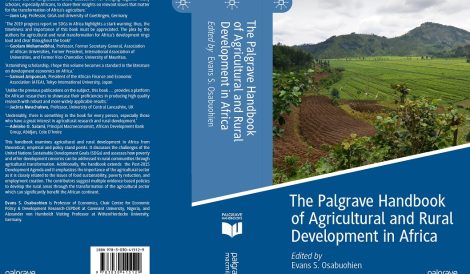Prof. Evans Osabuohien
- Posted on
- No Comments
Nigeria’s Galloping Population: A Blessing or Burden for Food Security?
Wageningen University in the Netherlands organised a workshop on the topic, “How will Africa’s growing population be fed in 2050”. This event took place from the 24th to 25th November, 2022. Professor Evans Osabuohien was among the invited speakers from Africa at the event. He specifically addressed the subject matter, “Nigeria’s Food Security and Galloping Population: Blessing or Burden”.
During his presentation, he spoke on the challenges Nigeria has faced in solving the Insecurity issues that she faces. Challenges like flooding, Climate Change, among others. He also showed a pre-20-year data analysis on food insecurity, undernourished Nigerians, and food production. Food production had an averagely stable level for about 16 years and experienced a sharp decline from 2016. On a 3-year average, severe food insecurity grew exponentially. The undernourished in Nigeria, though at a slow progression, also grew over the 20-year period. Furthermore, he adduced the implications of the galloping population growth on food security in Nigeria.


He drew case studies of two major (i.e., priority) crops produced in Nigeria, namely Cassava and Rice. In his presentation, he pointed out the gap in agricultural value chain with respect to production, processing, marketing and distribution. From his analysis, rice production was eight times more than the processing, while processing was two times more than distribution. It connotes that rice is not being processed as much it is produced. More so, just half of what is processed is sold to the consumers. This scenario constitutes huge post-harvest losses as well as subsistence level of rice production in Nigeria. The cassava case study was not so different from that of rice, as post-harvest losses is also high in cassava value chain and in most cases could be more severe due to perishability of cassava tubers.
These huge post-harvest losses can be attributed to ageing farming population, unattractiveness of agricultural sector to the youth. Thus, there is need for more awareness on the importance of agribusiness. Another important factor that can further increase the attractiveness of agribusiness in Nigeria is information and communication technology (ICT), given that Nigerian youths are ‘tech savvy’, he emphasised. In conclusion, he noted that the issue of continuity needs to be addressed; it is not enough to speak about the importance of agribusiness in schools, it should also be practiced by encouraging more individuals, especially the youthful population.
His related presentation on the issue of food security is available online.




